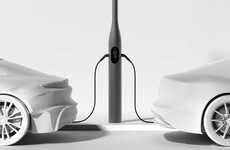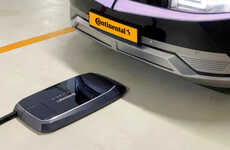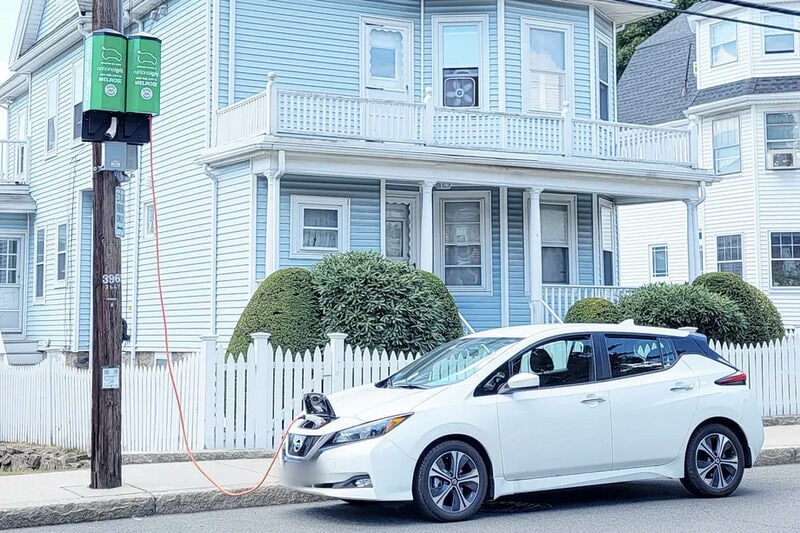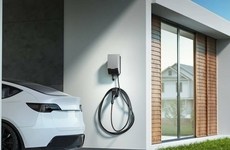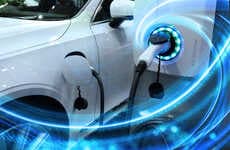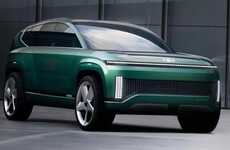
National Grid Debuted Space-Efficient Chargers in Melrose, Massachusetts
Colin Smith — August 13, 2022 — Autos
'National Grid,' an electrical solutions company, recently began a pilot test of pole-mounted electric vehicle (EV) chargers. These chargers are placed on public poles, such as lampposts, network poles, or other electrical infrastructure. The charger is placed high up the pole as to not interfere with foot traffic or regular vehicle traffic. The charging poles then feature a charger with a long enough wire to connect to an EV parked below.
This solution allows for National Grid to establish a range of chargers in more locations than simply in parking lots, which is expected to help promote EV transportation as charging methods become more accessible. Additionally, the utilization of electric poles results in the chargers having a direct-to-grid, reliable supply of power.
Users are invoiced based on the amount of energy extracted from the charger in each session, which is automatically tallied once the charger is unlocked.
Image Credit: Only In Boston, Twitter
This solution allows for National Grid to establish a range of chargers in more locations than simply in parking lots, which is expected to help promote EV transportation as charging methods become more accessible. Additionally, the utilization of electric poles results in the chargers having a direct-to-grid, reliable supply of power.
Users are invoiced based on the amount of energy extracted from the charger in each session, which is automatically tallied once the charger is unlocked.
Image Credit: Only In Boston, Twitter
Trend Themes
1. Pole-mounted EV Chargers - The trend of mounting EV chargers on existing infrastructure could reduce the costs of installation for businesses and promote more eco-friendly travel.
2. Direct-to-grid Charging - The trend of utilizing existing infrastructure for EV charging could lead to more reliable, direct-to-grid charging, reducing emissions and cutting energy waste.
3. Usage-based Invoicing - The trend of invoicing users based on energy usage could promote more efficient charging and incentivize users to seek out lower energy options, ultimately reducing emissions and overall energy usage.
Industry Implications
1. Electric Vehicle Manufacturing - Manufacturers could see increased demand if EV charging is made more accessible and more reliable infrastructure is established.
2. Energy and Utilities - Companies in the energy and utility sector could benefit from offering direct-to-grid charging solutions, working to integrate EV charging technology into existing infrastructure.
3. Smart City Technology - The adoption of pole-mounted EV charging tech offers major opportunities for companies creating smart city infrastructure by creating more space-efficient and eco-friendly solutions.
3.3
Score
Popularity
Activity
Freshness


